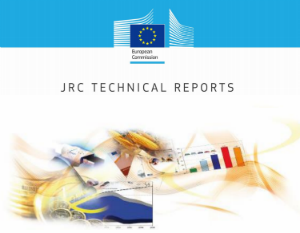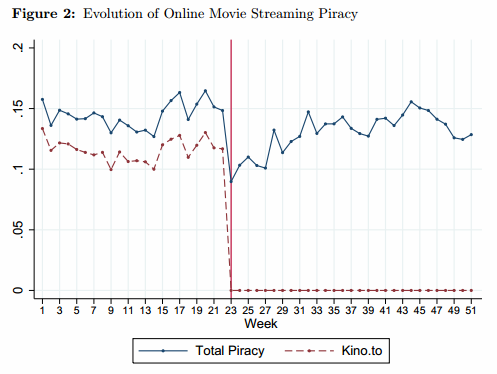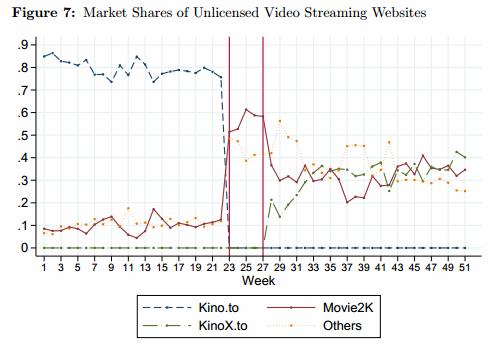Mega Rolls Out Legal Heavyweights to Refute Piracy Claims
vendredi 15 mai 2015 à 09:49 In September 2014, NetNames published a report titled Behind The Cyberlocker Door: A Report How Shadowy Cyberlockers Use Credit Card Companies to Make Millions. It accused New Zealand-based cloud-storage site Mega of being a “cyberlocker” and profiting from “content theft”.
In September 2014, NetNames published a report titled Behind The Cyberlocker Door: A Report How Shadowy Cyberlockers Use Credit Card Companies to Make Millions. It accused New Zealand-based cloud-storage site Mega of being a “cyberlocker” and profiting from “content theft”.
Mega reacted angrily to the report, branding it defamatory and warning of further action.
This morning Mega revealed it had commissioned international law firm Olswang to critique the NetNames report, an interesting move considering the firm’s pedigree. In 2014 Olswang worked with the UK government’s IP advisor to publish a set of anti-piracy recommendations. They were later endorsed by the MPAA.
The report
“Olswang was asked to analyse the evidence and data used by NetNames in order to establish whether there was any factual basis for the claims. Olswang is renowned for its deep experience in the technology, media and telecoms sector,” Mega says.
The result is a 42-page teardown of the NetNames report, clarifying Mega’s business and legal practices while leaving the brand company with plenty of questions to answer.
“The NetNames report has been extremely damaging to Mega,” Oslwang begins. “Most notably, it has been relied upon by United States Senator Patrick Leahy to apply pressure to major payment providers and credit card companies to withdraw their services from those identified in the NetNames report.”
Allegedly infringing content
One of NetNames’ key claims is that the majority of the files stored on Mega are infringing. Olswang attacks both the claim and the company’s methodology.
Describing the analysis file sample as “inherently biased towards finding infringing content”, the law firm notes that only publicly available files were examined while the vast majority of files stored on Mega (encrypted and not publicly shared) were ignored.
“In September 2014, when the NetNames report was published, Mega had approximately 2.5 billion files stored on its servers. This means that the sample of files analysed represents just 0.00002% of the total number of overall files,” Olswang reports.
The law firm adds that NetNames took no steps to determine whether content was actually infringing. Instead, filenames were used as the lone indicator of illegality.
Business model
After holding NetNames to its own definition of an “illegal cyberlocker”, Olswang found no similarities with Mega, noting that the company’s business model is “entirely at odds with NetNames’ own description of those used by cyberlockers.”
Noting that Mega’s basic service is similar to those provided by many other major legitimate cloud-hosting providers, Olswang addresses NetNames’ claims that rogue cyberlockers limit download speeds in order to encourage users to pay to upgrade to higher speeds.
“Mega operates a bandwidth limit in the same way as other legitimate storage providers and does not limit download speeds,” the law firm notes.
And then to advertising.
“The NetNames report acknowledges that Mega does not host advertising and is therefore an ‘exception’ to the other 29 cyberlocker companies named. However it still categorizes Mega as a cyberlocker despite it being clear that Mega’s primary sources of revenue do not share any of the characteristics ascribed to cyberlockers. We therefore see no possible basis on which such a conclusion can be drawn,” the report adds.
Aggressive affiliate programs, which are considered by some to be one of the hallmarks of a rogue file-hosting site, are also tackled by Olswang in the clearest possible terms.
“The NetNames report estimates that Mega pays out $66,789 per month to affiliates. The source of this figure is unexplained, and it is entirely false. To date, Mega has not finalized any affiliate relationships and therefore has never paid any commission or retainer to any affiliate,” the law firm notes.
Legal
Of primary importance is whether Mega complies with the law, both locally in New Zealand and elsewhere internationally. The Olswang report highlights no deficiencies while noting that Mega’s policies are “fully compliant with the New Zealand Copyright Act 1994 and the equivalent intermediary liability regimes provided for in the US DMCA and European ECommerce Directive.”
The company takes down infringing content on demand and reports deleting 131,377 files in the first quarter of 2015, a figure representing just 0.003% of all files stored on Mega. Site users are subjected to a “5 strikes” regime, meaning that after five reports of infringement accounts are suspended.
“At the time of writing 29,290 user accounts had been suspended by Mega for this reason, comprising less than 0.16% of total Mega users,” Olswang notes.
Conclusion
“Having reviewed the NetNames report and undertaken analysis of Mega’s service, Olswang has found no evidence to conclude that Mega can be considered a cyberlocker, or that it knowingly, willingly or even passively assists in or condones wide scale copyright or other infringement,” the law firm writes.
“In summary, Olswang has concluded that the allegations in the NetNames report are highly defamatory of Mega and appear to have no factual basis whatsoever. The NetNames report contains numerous factual inaccuracies and methodological errors and draws conclusions that are entirely wrong.
“[All] of Mega’s characteristics are consistent with those of a legitimate cloud storage provider in the same way as Google Drive, Microsoft OneDrive, Apple iCloud, Dropbox and many other similar providers,” Olswang concludes.
Mega says it is pleased with the findings of the report and is now considering its legal position.
“It is quite clear from the comprehensive review conducted by Olswang that the assertions about Mega in the NetNames report are totally without foundation and are defamatory. We are now taking legal advice on this serious attack against Mega,” says Mega CEO Graham Gaylard.
“Olswang’s credentials on anti-piracy issues are impeccable, and their conclusions totally refute the allegations made in the NetNames report.”
Thus far NetNames has ignored requests for comment on the inclusion of Mega in its report. With pressure building as it now is, the company could soon be left with little choice.
The full report can be downloaded here (pdf).
Source: TorrentFreak, for the latest info on copyright, file-sharing, torrent sites and anonymous VPN services.
 A few years ago Europe witnessed the largest piracy-related busts in history with
A few years ago Europe witnessed the largest piracy-related busts in history with 

 One of the key aims of the now infamous SOPA legislation that failed to pass several years ago was the takedown of domains being used for infringing purposes. The general consensus outside of the major copyright groups was that this kind of provision should be rejected.
One of the key aims of the now infamous SOPA legislation that failed to pass several years ago was the takedown of domains being used for infringing purposes. The general consensus outside of the major copyright groups was that this kind of provision should be rejected. While in previous years people were simply grateful to have somewhere to host their own vides, these days a growing number of YouTube users rely on the site to generate extra cash.
While in previous years people were simply grateful to have somewhere to host their own vides, these days a growing number of YouTube users rely on the site to generate extra cash. To counter the ever increasing piracy threat a group of smaller movie studios launched a new coalition last month, the
To counter the ever increasing piracy threat a group of smaller movie studios launched a new coalition last month, the